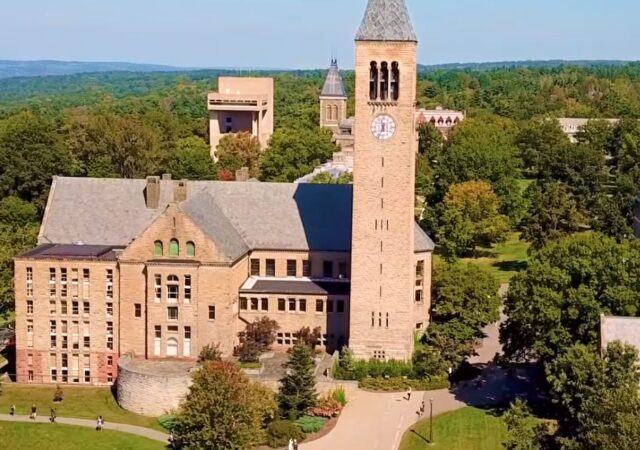By All Means, Eliminate Legacy And Donor Admissions Preferences Because They Are Corrupting, Regardless of Racial Impact

In reaction to the Supreme Court ruling that race-based affirmative action violates the Equal Protection Clause, there has been a lot of what-about-ism.
The biggest what about is college legacy and donor preferential treatment, meaning applicants who have an alumni family connection or who were related to a major donor received preference. As if those preferences somehow excuse the illegal racial preferences that permeate higher education.
These preferences allegedly benefit whites over blacks.
The next big fight over college admissions already has taken hold, and it centers on a different kind of minority group that gets a boost: children of alumni.In the wake of a Supreme Court decision that strikes down affirmative action in admissions, colleges are coming under renewed pressure to put an end to legacy preferences — the practice of favoring applicants with family ties to alumni. Long seen as a perk for the white and wealthy, opponents say it’s no longer defensible in a world with no counterbalance in affirmative action.President Joe Biden suggested colleges should rethink the practice after the court’s ruling, saying legacy preferences “expand privilege instead of opportunity.” Several Democrats in Congress demanded an end to the policy in light of the court’s decision to remove race from the admissions process. So did Republicans including Sen. Tim Scott of South Carolina, who is vying for the GOP presidential nomination.
That may be partially true, but it’s only part of the story. Lower and middle income white students also are disadvantaged because they receive zero preference: Not race, not legacy, not donor. The legacy and donor preference may benefit wealthy whites, but they also increasing benefit wealthy college-graduate blacks and other non-white groups.
So it’s a mixed bag, and a what-about-ism that really doesn’t even answer the question of whether racial preferences are unconstitutional.
But to the extent “eliminate legacy and donor preferences” is a dare, I accept it and agree. By all means eliminate the corrupting influence of legacy and donor admissions preferences.
I have held this position long before the recent SCOTUS decision. In an October and November 2022 email interview with ProPublica about our CriticalRace.org project, I was challenged in just such a fashion. In a portion that was not published by ProPublica but was published by me, I responded as follows to a written question from reporter Dan Golden:
Question 4) I wrote a book called “The Price of Admission: How America’s Ruling Class Buys Its Way Into Elite Colleges–And Who Gets Left Outside The Gates,” which is sometimes taught in college classes. It documents that very rich families often donate large sums to selective universities, which then admit their under-achieving children under the rubric of “legacy preference” (if the parents are alumni) or “development preference” (if they aren’t).
My book examines these admissions preferences primarily as an issue of wealth and social class. But because the vast majority of the donor families are white, some academics would regard the preferences as an example of systemic or structural racism–i.e., they institutionalize admission of white students with weak grades and test scores. Do you disagree with this characterization, and if so, what would your counterargument be? Should teaching of this race-based interpretation of legacy and development preference be discouraged or banned in college classes?
Answer (emphasis added): I have not read your book, and don’t have time now, so I can’t comment on your theories and findings. I am against legacy admissions preferences regardless of whether they have a racial impact on admissions, because they contribute to a cronyism that shifts the focus from the individual’s merits to the school’s interest in developing alumni fundraising. I’d like to see all identity-group admissions preferences eliminated to level the playing field and to increase the focus on the intrinsic merit of each applicant without regard to group identity.
That goes double for admissions preferences for large donors.
All these colleges and universities crying over the SCOTUS decision need to put their money where their virtue-signaling mouths are. Eliminate legacy and donor admissions preferences.
There you go. Let’s do it.
CLICK HERE FOR FULL VERSION OF THIS STORY